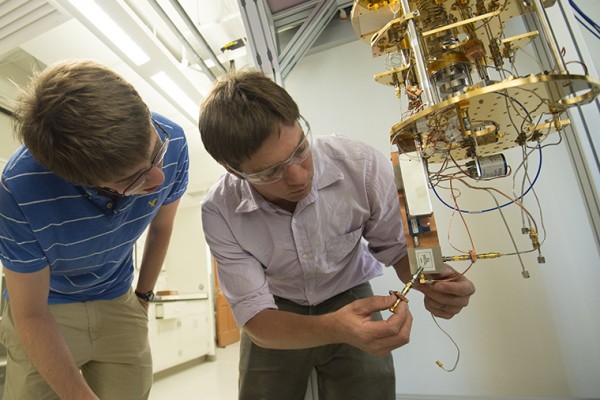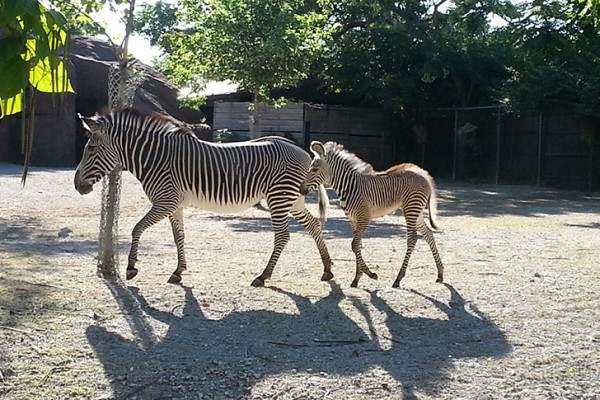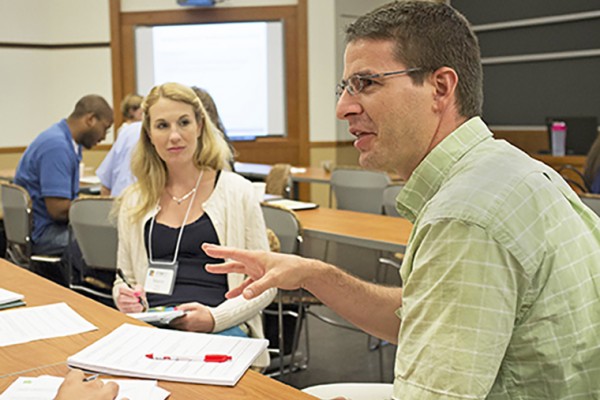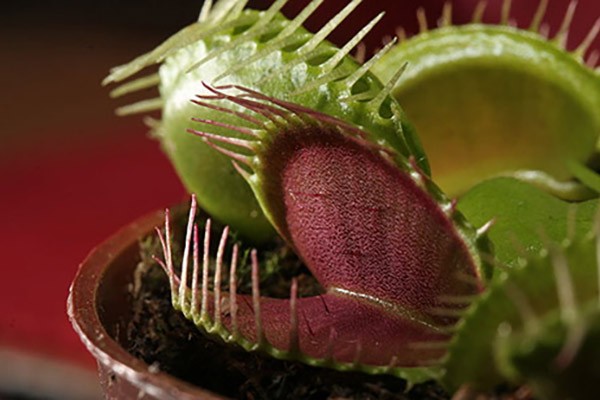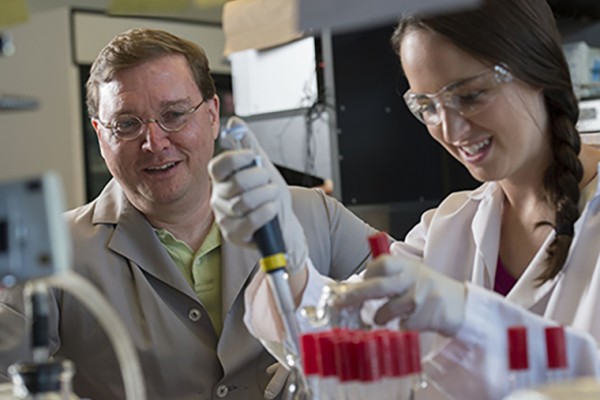Finding quantum lines of desire
What paths do quantum particles, such as atoms or photons, follow through quantum state space? Kater Murch of Washington University in St. Louis has used a superconducting quantum device to continuously and repeatedly record the paths the device took through quantum state space. From the cobweb of a million paths, a most likely path between two quantum states emerged, much as social trails emerge as people round off corners or cut across lawns between buildings. The research is featured on the cover of the July 31 issue of Nature.
Baby zebra is latest success in university-zoo research partnership
The recent birth of a female Grevy’s zebra foal at the Saint Louis Zoo marks another milestone in a long-running Washington University in St. Louis research partnership that is making significant contributions to the preservation of Grevy’s zebra and the equally endangered African wild ass.
Schaal named to national Foundation for Food and Agricultural Research board
Barbara Schaal, PhD, dean of the Faculty of Arts & Sciences at Washington University in St. Louis and the Mary-Dell Chilton Distinguished Professor, is one of 15 scientists from academia and industry named to the new Foundation for Food and Agricultural Research. U.S. Agriculture Secretary Tom Vilsack announced the foundation July 23.
Expecting to teach enhances learning, recall
People learn better and recall more when given the impression that they will soon have to teach newly acquired material to someone else, suggests new research from the Department of Psychology in Arts & Sciences at Washington University in St. Louis.
Brunt named chief of minimally invasive surgery
L. Michael Brunt, newly named to lead the Section of Minimally Invasive Surgery at the School of Medicine, is a nationally recognized laparoscopic surgeon with expertise in abdominal, solid organ and biliary surgery.
STEM Faculty Institute on Teaching a good FIT
Washington University in St. Louis’ Teaching Center brought together faculty from Arts & Sciences and the School of Engineering & Applied Science for the inaugural Summer STEM Faculty Institute on Teaching (STEM FIT), held June 17-19 in Seigle Hall. Faculty developed strategies for incorporating evidence-based teaching practices to improve student learning and encourage undergraduates to persist in STEM majors.
Discovery of Neandertal trait in ancient skull raises new questions about human evolution
Re-examination of a circa 100,000-year-old archaic early human skull found 35 years ago in northern China has revealed the surprising presence of an inner-ear formation long thought to occur only in Neandertals.
Doctoral students to study biology, mechanics connection under NIH grant
The Venus Flytrap, with its two leaf jaws that sense when an insect approaches and quickly snap shut, is one of nature’s clearest examples of biology and mechanics working together to sustain life. Four doctoral students at Washington University in St. Louis will have the opportunity to take a closer look at this intersection under a five-year, $921,040 grant.
Washington University’s Joseph Jez is one of 15 ‘million dollar professors’
Joseph Jez, PhD, co-director of the plant and microbial biosciences graduate program at Washington University in St. Louis, is one of 15 professors nationwide to receive a $1 million HHMI grant to bring the creativity he has shown in the lab to the undergraduate classroom. He plans to use the grant to establish a two-year program called the Biotech Explorers Pathway that will introduce entering students to both the science and business of biotechnology.
Slaying bacteria with their own weapons
A novel antibiotic delivery system would exploit small molecules called siderophores that bacteria secrete to scavenge for iron in their environments. Each bacterium has its own system of siderophores, which it pumps across its cell membrane
before releasing the iron the siderophores hold. If an antibiotic were linked to one of these scavenger molecules, it would be converted into a tiny Trojan horse that would smuggle antibiotics inside a bacterium’s cell membrane.
Older Stories
